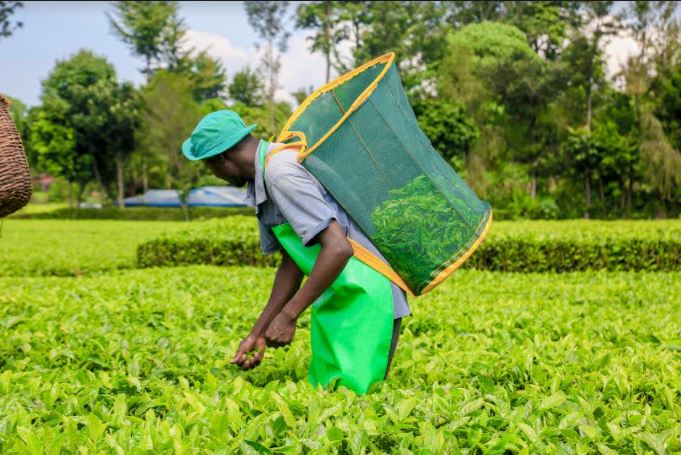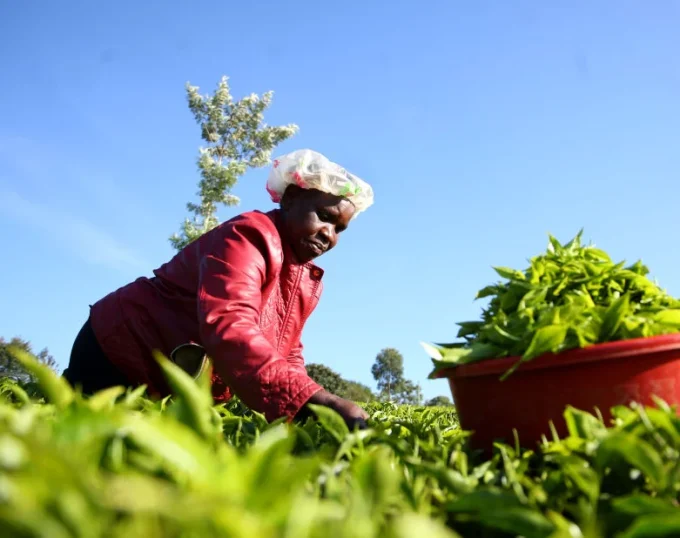Smallholder tea factories have announced second payment rates (bonuses) for farmers for the financial year ending June 2021 covering the period July 1, 2020, to June 30, 2021.
This follows meetings by factory directors from the 54 KTDA-managed factories that were held between September 20 and October 1 to review the audited 12 months accounts of their factories and declare the second payment rate.
“Factory directors have fulfilled their mandate to review the performance of their companies over the 12 months and declare the second payment rates. The factories have already directly communicated to their farmers about these rates. Generally, the rate per kilo does not vary much from those of the previous financial year” said David Ichoho, KTDA Holdings Chairman.
“Farmers will receive this payment in their accounts at the end of October 2021,” he added
The second payment declarations come against a backdrop of an 8.3 percent drop in CTC tea prices at the Mombasa Tea Auction from an average of US$ 2.38 last financial year (2019-2020) to US$ 2.18 in the 2020-2021 financial year ending June 30, 2021. During the financial year under review, farmers delivered 1.25 billion kilos of green leaf to factories, a 14 percent drop from the record production of 1.45 billion kgs in the previous year (July 2019 to June 2020).
The relatively favourable exchange rate of the Kenya Shilling to the US dollar has however helped shore up earnings from the sale of tea, which is generally dollar-denominated.
The drop in prices in the period under review was a continuation of a downward trend witnessed since 2018 as high production over the years has seen supply outstrip demand and tea processors carrying forward unsold stocks.
Business was also disrupted by the COVID-19 pandemic that not only caused worldwide shipping and logistics challenges but also reduced demand for tea in key consuming countries.
Factory companies pay a different second payment (bonus) rate per kilogram of tea to farmers. This rate depends on the factory income for the year based on the average price of tea fetched at the auction, costs of production, labour and other related costs. The costs are deducted from the factory income and the balance is paid to farmers as a second payment (bonus). Factories also make monthly payments to farmers.
To mitigate Kenya’s market concentration risk on black teas as well as overreliance on four main markets which account for 70 percent of our tea exports, KTDA-managed factories have embarked on the production of orthodox teas that are gaining global popularity and fetching better prices.
To further reduce ballooning energy costs, KTDA-managed factories are implementing energy efficiency changes that have seen the amount of energy used to produce a kilo of tea drop by 15 percent over the last three years. Factories in some tea-growing regions are also developing small hydropower stations to produce cheaper and more stable power supply.
The newly inaugurated Board has put in place a number of measures to improve the welfare of farmers under the tea reforms agenda. These include setting a minimum price for KTDA teas, a move that has led to improved tea prices at the market.
“I wish to reiterate that we have embarked on various reforms and initiatives aimed at increasing money to farmers. The reforms are already bearing fruit and farmers should look forward to higher returns in the coming months,” said KTDA Chairman David Ichoho.
Already, prices of teas under the minimum price have improved significantly, heralding better incomes for farmers at the end of the current financial year, ending June 2022.
The Board has also spearheaded the supply of fertilizer to farmers and considerations are at an advanced stage for a Kshs 1billion subsidy from the government to cushion farmers from the high cost of the input.
The Board and Management continue to focus on farmer-centric initiatives that will ensure farmers the best out of their tea business.












Leave a comment